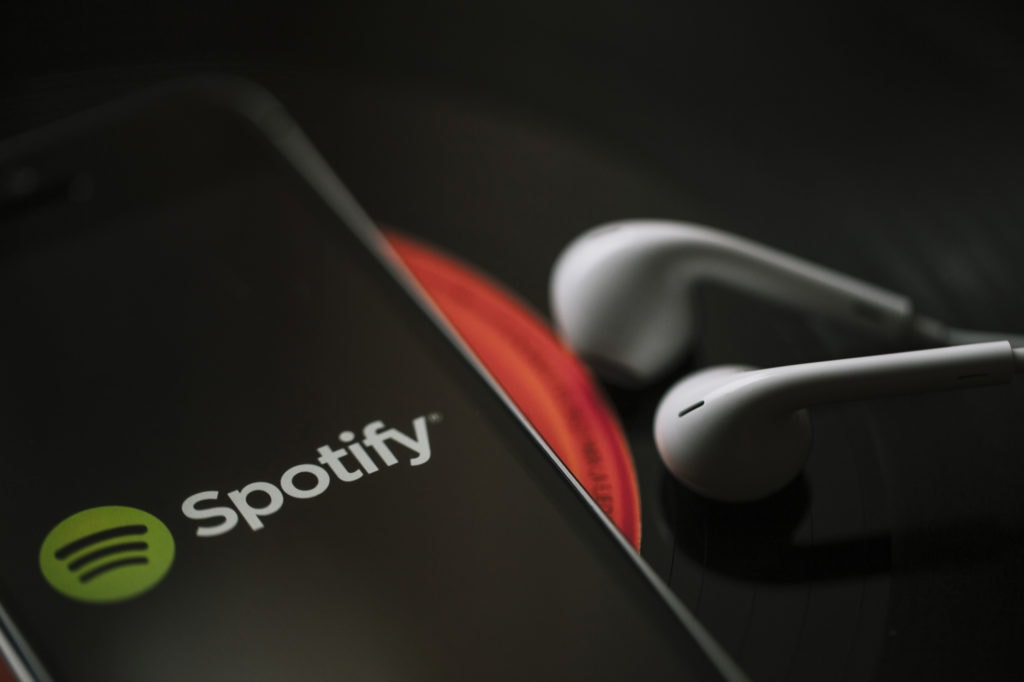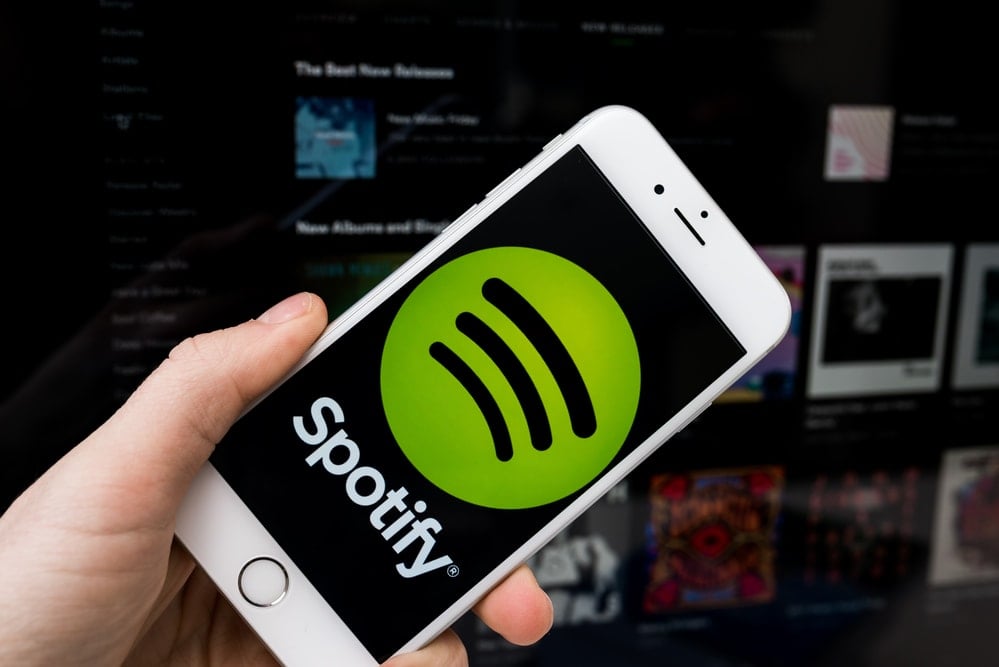Serving over 150 million subscribers, Spotify is one of the most popular audio streaming subscription services. But did you know that Spotify launched to try to address music piracy in the early 2000s? Keep reading to learn how the company started and grew into the massive audio streaming service it is today.
Stats
- 155 million subscribers and 345 million monthly active users (as of 12/31/20)
- Paid out 21 billion euros since 2008
- Serves 93 markets globally
- Carries over 70 million tracks, over 2.2 million podcast titles, and over 4 billion playlists
If you’ve been thinking about starting a podcast, check out this article first.
Spotify's Company History
The Beginning
Our story begins with Daniel Ek, who was deep in the tech world. He helped build Advertigo, an ad-tech startup. After selling it in 2006, Ek was a millionaire by 23.
Despite the availability of some music-downloading services, piracy was rampant in the early 2000s. (Remember Limewire and Pirate Bay?)
Music was available for purchase. But more people opted for downloading music illegally — it was easy and free. Ek brainstormed solutions to piracy with Martin Lorentzton, the man who acquired Advertigo.
The two realized the best way to curb illegal piracy is to offer a better alternative. As a result, that's when Daniel Ek and Lorentzton co-founded Spotify in 2008. The new company was to become an accessible and affordable music-streaming platform.
"I realized that you can never legislate away from piracy. Laws can definitely help, but it doesn't take away the problem," Ek said in an interview with the Daily Telegraph." The only way to solve the problem was to create a service that was better than piracy and at the same time compensates the music industry. That gave us Spotify."
Spotify's Rapid Growth
The company quickly gained popularity. In 2009, Spotify expanded from Sweden to the UK, France, and Spain. Its databases held six million songs. Finally, Spotify also managed to secure a spot in Apple's app store.
In 2010, Ek struck a partnership between Facebook and Spotify. Sean Parker, a co-founder of Napster, invested $100 million to help Spotify expand into the United States. In 2012, the service already reached 20 million total active users. Spotify was also available as an application on Android smartphones.
In 2018, Spotify established an even wider global presence in the Middle East and South Africa. That same year, Spotify went public on the NYSE in a direct listing.

Today
Spotify has hit significant milestones. By the end of 2020, its subscriber base grew to 155 million. Spotify's servers also carry over 70 million tracks and over 2 million podcast titles. Since its launch in 2008, the company has paid 21 billion euros to its rightsholders.
However, Spotify hasn't plateaued just yet. In 2018, the company filed for a patent for technology that curates music based on the users' speech and background noise. That patent was approved in January 2021, Pitchfork reported. The technology can factor in intonation, rhythm, emotional state, gender, age, accent, and more.
Privacy issues aside, it's exciting to see how Spotify uses technology to innovate its already impressive service.
Recent News
WFH Accommodations
Spotify employs over 4,000 people. With the coronavirus pandemic, it is following the examples of other big-tech companies. The music software company is now offering work-from-home accommodations, Online Insider reports.
"Work isn't something you come to the office for; it's something you do," according to Anna Lundström and Alexander Westerdahl, head of HR. "Effectiveness can't be measured by the number of hours people spend in an office. Instead, giving people the freedom to choose where they work will boost effectiveness."
Spotify Reportedly Does Not Fairly Support Its Artists
Many have accused Spotify of not paying its creative artists fairly. This is partly why Taylor Swift pulled her music from the platform. She claimed artists should be fairly compensated - and that the platform gave them a raw deal by negatively affecting music sales.
However, others such as The Hard times, have risen in defense of Spotify. They say that the service makes it possible for new artists to launch and promote their music.
"Without companies like Spotify to try and monopolize the monetization of music, small artists would have to release their music on far less fashionable platforms," The Hard Times reported.
The Hard Times also notes how Spotify takes on most of the risk. Therefore, the company should enjoy most of the profits.
"It's how major labels have operated for years, and we've never had a problem before!" they said. "It's the same thing with Spotify. Sure, they take a big cut but believe me, that revenue is going right back into the DIY scene."
Politically Incorrect Podcast Figures

Spotify houses over 2 million podcast titles. This includes podcast figures known for being less than politically correct. Joe Rogan, in particular, explores controversial topics.
Some staffers are unhappy about Rogan's content. They proposed that figures like Joe Rogan should be subject to a direct editing oversight. According to Digital Music News, this might include "content flags, trigger warnings, references to fact-checked information, or simply refusing to publish an episode at all."
CEO Daniel Ek doesn't seem to share the staffers' sentiment. "From a business standpoint, the reason is fairly obvious. Rogan's audience likes his direct, unedited style and could quickly abandon the comedian-podcaster if he's edited," Digital Music News added.
Frequently Asked Questions
What is Spotify, and how does it work?
It's a music streaming service with one of the largest music and podcast libraries, offering a "freemium" service. Those who pay for a Premium subscription can enjoy various perks. This includes ad-free listening, download music, and can skip songs unlimited times.
What company owns Spotify?
It falls under parent company SPOTIFY TECHNOLOGY S.A. Spotify USA, Inc. serves the US customer base. Finally, Spotify AB serves users in other countries.
What is Spotify worth?
Its market cap was $62.74 billion on February 23, 2021, according to YCharts.
Who developed Spotify?
Daniel Ek and Martin Lorentzon are the founders. The company launched in 2008 in Stockholm, Sweden. Headquarters are in New York, NY.
The Bottom Line
Spotify is another example of capitalism solving problems. There were laws that made piracy illegal. Yet, people continued with their illegal downloads.
The only solution to piracy was to offer a better alternative. That is what Spotify delivered. It gives users access to thousands of songs and podcast titles at an affordable price. It also provides a platform for up-and-coming artists to promote their music.
Leave it to the entrepreneurs to create a win-win solution for everybody.












